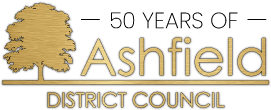Report commercial noise nuisance
Sometimes people at work or at home are disturbed by noise which originates from commercial or industrial premises. Examples are machinery noise, fan noises, vehicle movements, alarms and radios. Where these occur continuously or loudly, or when they are new noises, they can be very annoying.
Noise from commercial premises is often dealt with in the same way as that from domestic premises.
However, in some cases we may not need to prove a statutory nuisance where the premises hold a public entertainment licence. These licences are issued in order to ensure that the disturbance caused to the general public is kept to a minimum. Action can be taken against premises that operate outside of its licensing agreement.
Report commercial noise nuisance
The most common enquiries are about disturbance from neighbouring commercial premises, such as loud noises, alarms sounding in the middle of the night, building site noise, noise made by businesses, licensed premises and noise in the street from customers leaving a venue.
For us to take action we need to be sure that the problem is a 'statutory noise nuisance'.
If you are disturbed by a noise we would suggest you approach the premises where the nuisance noise is coming from. It may be the business are not aware they are causing distress and may be able to reassure you they will prevent any further issues.
If you feel that you cannot approach the person or company involved we can contact them on your behalf. We will ask you to keep a diary of the noisy/nuisance occurrences for approximately 2 weeks and we may come out and listen to the noise ourselves in order to “witness it”.
At this point we will also contact the other party/premises/neighbouring property and advise them that a complaint has been made against them and what the complaint is. We will suggest a solution or compromise to both parties if we consider the noise to be unreasonable.
It is possible we may feel there is no justification for our involvement. In this case, we would offer advice to you, and explain the reasons for our decision, this is because the law relating to business premises is slightly different than domestic premises: they can defend themselves by proving that they are using the "best practicable means" to prevent the noise.
Report commercial noise nuisance
Other ways to report a commercial noise nuisance
If you cannot report a commercial noise nuisance online or have a question you can contact us by:
- email: dutyenvironmentalhealth@ashfield.gov.uk
- telephone: 01623 457000.
Types of commercial noise and noise nuisance
Construction site noise
Construction sites are a very common source of noise pollution. This covers inherently noisy operations – building works, roadworks, demolition, dredging etc. They often take place in areas which were quiet beforehand and are expected to be quiet again when the work is complete.
Under the Control of Pollution Act 1974 we can serve a notice imposing requirements as to how the construction works should be carried out to minimise disturbance. We can set noise limits and restrict the hours which particular machinery is operated, taking into account the character of the local area.
Anyone intending to carry out construction works may apply in advance for consent. Compliance with the terms of a notice or consent does not rule out proceedings by an individual on the grounds of noise nuisance under s.82 of the Environmental Protection Act.
Construction sites and contractors may be registered with the Considerate Constructors scheme, a voluntary code of practice intended to minimise disturbance and ensure safety. Where this is the case, a sign or poster is normally displayed at the site with contact details for the site manager and scheme administration office.
Generally, noisy construction operations should be restricted to the following hours:
- Monday to Friday: 8am to 6pm
- Saturday: 8am to 1pm
- No noisy work on Sundays and Bank Holidays.
If you are a company planning to do construction work, it would be advisable to give notice to us. You should also inform all local residents of your plans.
Noise from pubs, clubs and other entertainment venues
Most public entertainment venues will have a license which should control the way in which certain activities are run. These may have conditions attached to them which require specific measures to minimise noise such as restrictions on hours of operation. You can find out more on the licensing pages for this type of premises.
Bird scarers
Bird scarers and bird deterrents are essential to protect many crops from damage by wild birds. If used thoughtlessly they can seriously annoy and disturb the public.
As a minimum, operators of bird scarers should:
- place the scarer as far away from residential properties as possible, point them in the opposite direction and use baffles
- avoid using auditory scarers within 200m of sensitive buildings before 7am (or 6am if sunrise is earlier)
- take note of the prevailing wind when siting scarers.
- use reflective or absorbent baffles (such as straw bales) to concentrate the sound onto the field and away from neighbouring properties.
- try not to use auditory scarers on a Sunday.
